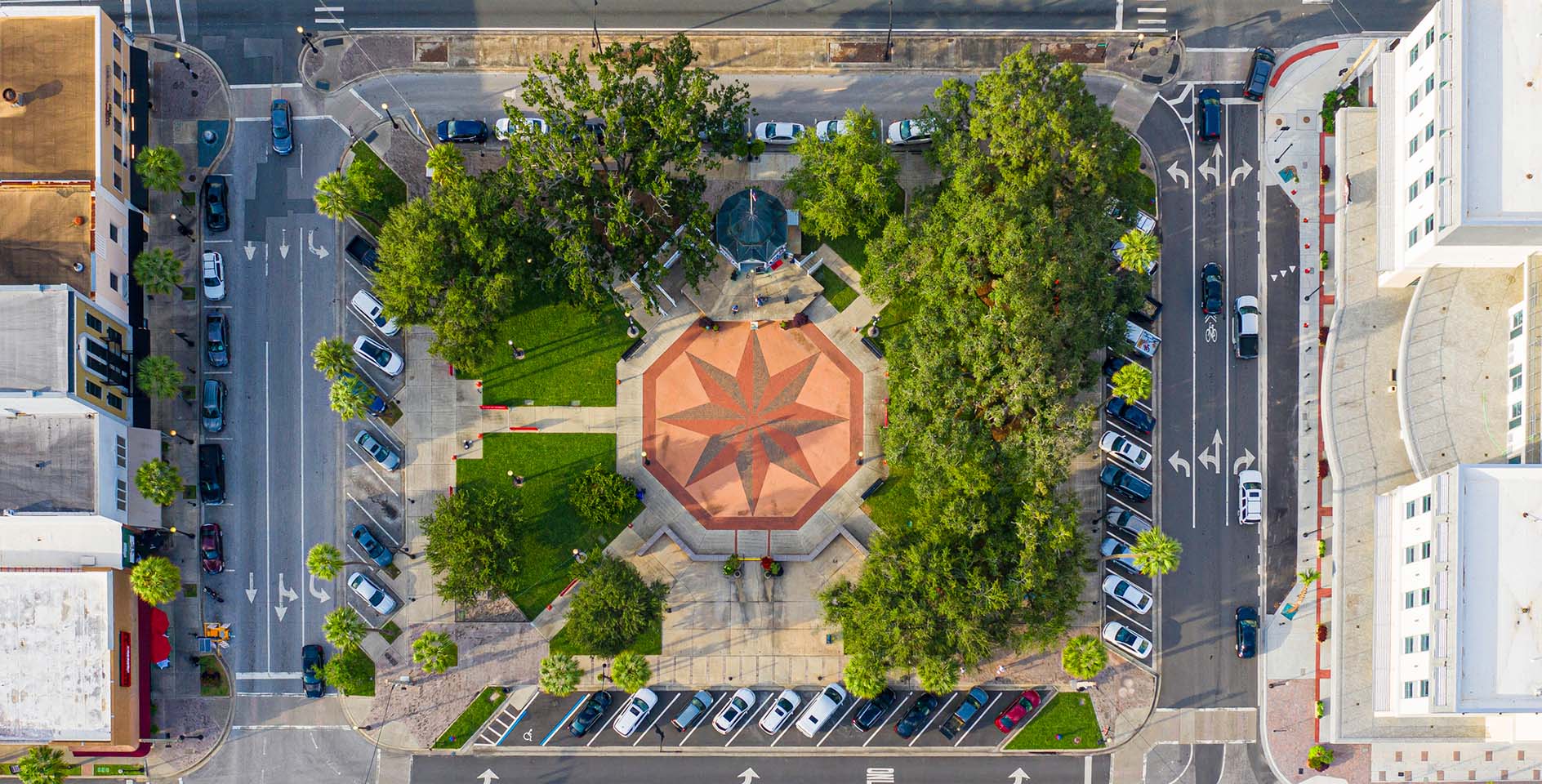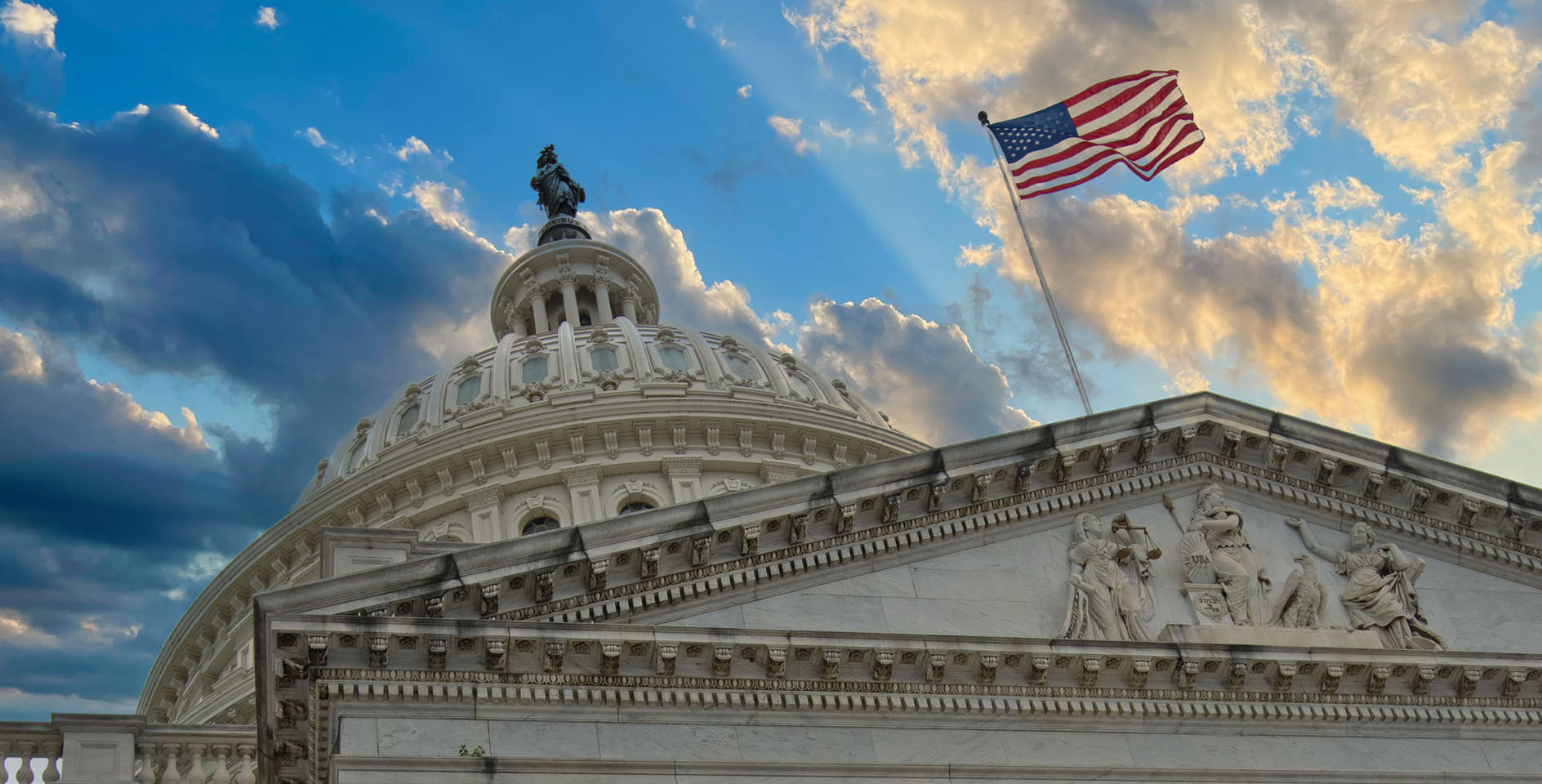Seeking to serve the public while one’s life is on public display, especially as a Christian, is not an easy decision, but it’s a worthwhile one. And it is a choice that both D.J. Jordan, who ran for public office in Virginia and is the chief of staff for the Virginia Office of Attorney General, and Gov. Bill Lee, currently serving the state of Tennessee as the 50th governor, prayerfully made in order to help the communities around them. Government engagement can be complicated as partisanship and differences of opinions threaten to tempt public servants toward hostility and division. But the way of a Christian must be different. Below, Jordan and Lee reflect on the call to public service, the importance of loving our neighbors, and a Christian’s motivation for both.
Lindsay Nicolet: What led you to decide to run for public office? Did you feel a specific calling toward it?
D.J. Jordan: I decided to run for office in 2019 because I felt called to be involved in government and public policy. I had already served on Capitol Hill for about 10 years, but I wanted to be even more involved as a legislator. Public policy is something that I’m really passionate about. I love bringing people together to analyze situations and develop policy solutions to community problems.
Gov. Bill Lee: I had a wonderful life that really had nothing to do with politics or government. I ran a business. I had a beautiful family. I’ve been in the private sector all my life and very engaged in my church. But when I was about 40 years old, my first wife was killed in an accident. I had four little kids, and it really turned my life upside down. But God used it in a really powerful way to challenge me about my life going forward, how short life is, and how important it is that we live it well.
So I got really involved in nonprofit work, especially with my kids who went to Africa, Haiti, and Mexico. And I went to the Middle East and served people in very difficult circumstances and got a lot of purpose out of that. I also got involved in nonprofits close to home, worked in the inner city with at-risk youth and worked in prison reentry ministry with men coming back from incarceration.
Those close-to-home nonprofit efforts got me connected to public policy. I became very engaged in underprivileged or underserved children’s educational issues, which led to an appointment on the Higher Education Commission. I got involved in this reentry work that got me appointed to a governor’s task force on recidivism and sentencing reform. So I started having interactions with state government and functions of government that were very intriguing to me because they were around issues that I was passionate about.
That’s what started the prayer that my [second] wife and I had about being engaged in public service. It came at a time in my life when I could do that. My children were grown, and my business was in a good spot, so we made a decision to pray about it. In fact, I told my wife I was going to pray about it every day starting on Jan. 1 of that year. I would ask God to speak to me about whether or not I should do this. And we did. And God did. And we made the decision and ran for governor.
LN: What benefit can Christians, specifically, bring to public service? Why should we serve in public office?
DJ: Christians are called to be salt and light in the world, that includes every aspect of society, even public service. I think the characteristics of our faith should be conducive to successful public service. If we have more elected officials and government leaders who try to model the same humility, love, wisdom, and grace of Jesus, then the better our government will be overall.
GBL: As believers we are really compelled by God. We’re challenged by God to love our neighbors as ourself and to serve our neighbors. And to me, if we love our neighbors, then that means we’re called to serve them. Everyone should take stock of how it is that they’re serving their neighbors. It looks like a variety of ways. And I’ve often said your profession really doesn’t determine how you best serve your neighbor. It’s just whatever your profession is, wherever you spend your days, and however you spend your life that serving your neighbor is a possibility and is an obligation that we have.
So the reason that believers can and should be engaged in public service is because it’s a great opportunity to serve your neighbors, as is being in the private sector and or working in nonprofits. They’re all pathways. One of them doesn’t have a higher calling than the other, in my view. I think it’s just an opportunity to serve neighbors. I don’t know if that’s the [only] reason to get into public service, but if you have someone who has a particular interest in it, then it’s certainly a way to serve.
LN: As a Christian, how do you advocate within your party? And how does it shape the way you interact with members of the opposite party?
DJ: The two-party political system is the system that we must work within, but it doesn’t mean I like it. I really don’t like the hyper-polarization and tribalism that our nation is experiencing right now, from both major parties. If Jesus lived as a human in America today, I don’t think he would be a Republican or a Democrat. I think he’d be an Independent who challenges all parties and governments to a different standard.
LN: How does your faith make you different from a non-Christian in both political parties?
DJ: In many ways, I should have more commonality with a follower of Jesus from another political party. For a Christian, we can be united around our common faith and purpose. For example, we can look at Isaiah 1:17 and want to seek justice, defend the oppressed, and take up the cause of the fatherless and discuss ways to work together on these goals. We may have different policy prescriptions but we can come together on solutions.
LN: What traits are important for Christians who serve in public office? And how can those be developed in the Christian life?
DJ: My faith is an important part of who I am. The convictions that I have, as a Christian, guide me in how I serve my wife, kids, and community, but also guide how I engage in politics. Because I believe that every person is created in the image of God, I believe every person is worthy of respect and value. I try to look at each person as God sees them, no matter if I agree with their politics or not.
John 13:34-34 says, “A new command I give you: Love one another. As I have loved you, so you must love one another. By this everyone will know that you are my disciples, if you love one another.”
The trait that should be most well-known among Christian government leaders is our love for people. Jesus did not say, “By this everyone will know that you are my disciples, if you judge one another, or if you show your Bible to one another.” No. It’s about how you love other people.
GBL: Every day Christians have a challenge to live according to how God calls us to live—to be responsive, to be obedient, to live according to his principles. It’s a challenge, and we all face that challenge every day—the struggle between our perfection that comes from the blood of Christ and our desire to be holy, which is a pursuit that each of us has. And it’s particularly challenging in the public square because you are a public figure, so your life is on display.
And people who are not believers have perceptions about those of us who are Christians. We’re no different than they are. The fact is that we’re broken, flawed, and have our weaknesses and our frailties, yet we’re forgiven and made perfect in him. Nevertheless, to the rest of the world, we are walking along as flawed human beings, which is why I have often said the more public a person’s life is as a believer, the more ardently we should pursue and think about the life of a believer on display.
Think about the fruit of the Spirit as outlined in Scripture. When you’re walking in the Spirit, here’s how it will be evidenced: love, joy, peace, patience, kindness, goodness, gentleness, faithfulness, and self-control. If believers walked in the fruit of the Spirit in a very consistent and public way, how different would the political environment be in our country? I believe it would be substantially different. We all recognize we don’t just pull up our bootstraps and start walking in the fruit of the Spirit. But as we walk in obedience, as we pursue the Lord, as we are truly committed to our personal relationship with him, then out of that flows the fruit of the Spirit.
If Christians are not walking in the Spirit, then there has to be a real question in their own self evaluation. Am I in fact walking closely with the Lord if the fruit of the Spirit is not a natural outflow of that walk? I oftentimes challenge myself to judge whether or not I’m bearing the fruit of the Spirit. For example, I ask myself, in this interaction with these people, in this press conference, in standing before this group of people who may or may not agree with me, and in this public policy dialogue am I exhibiting the fruit of the Spirit? It’s something that I challenge myself with on a frequent basis. Regardless of if believers are in the public square or not, we should be challenged by that Scripture. But it’s particularly valuable for those in the public arena.
LN: As an elected official or someone running for office, how do you keep in mind that politics is important but not ultimate—and not the end goal?
DJ: It’s important to remember that Jesus should be Lord of every aspect of your life, including your involvement with politics. When you believe in a God who rules the universe, it helps put everything in perspective. If political success is your identity, it may bring you happiness, but it will also bring about great sorrow and embarrassment.
GBL: We should ask, is the kingdom of God and my obedience to that kingdom the most important thing in the world? God uses those most traumatic moments in our lives and makes them the most transformational. He’s very good at that. He’s a redeemer, and that’s what he does. He takes the worst and uses it in a redemptive way. When my first wife was killed, it obviously was a very traumatic and challenging season for me. I had four kids. I was 40 years old. It just turned my whole life upside down.
But one of the things that I realized was, when one of the most important things in my life was taken from me, it made the reality of what matters and what doesn’t matter much brighter. Suddenly, the things of Earth just didn’t matter much anymore. When the most important thing on Earth is gone, then the things of Earth don’t seem to have the importance that they used to. And the things of eternity become much more evidently valuable. I think that we have to view everything in our life that way. Those moments where we’re forced to are rare and difficult at times, but wonderful. But once we learn that lesson, I think you never forget it.
I find myself in this job frequently remembering that there are things more important than winning a political battle. There are things more important than getting a piece of legislation passed. And yet, it’s all in the framework of valuable things on Earth. But the things on Earth fade away at some point. And to the extent that they are connected to things eternally, they’re valuable. But even those diminish when considering what ultimately is the most valuable thing that was lost.
LN: Do you have any advice for a Christian who is praying about running for public office?
DJ: I would advise them to seek counsel from a group of wise and spiritual people. There is safety in much wise counsel. If you’re having trouble discerning direction from God, it’s helpful to have trusted people around you to discuss this decision. You want to have people around you that can keep you humble and grounded. If you don’t have that type of support system and Christian friendships in your life, you’re missing out. If you decide to run for office, you’ll definitely need that for encouragement, humility, and wisdom.
GBL: I think my encouragement for them would be that this is a tremendous opportunity to serve people. And it is a tremendous opportunity to serve people. And if God is calling you and inspiring you to do so, it is a very worthwhile endeavor. It is, however, like any pursuit, wrought with challenge and difficulty. It is not for the faint-hearted. And, in my view, it requires a very steadfast commitment that should be accompanied with a very strong desire to pursue God in the midst of what you’re doing. It isn’t easy, but it’s incredibly worthwhile. And yet that can be said of being a stay-at-home mom, a schoolteacher, a physicist, a welder, or a holder of public office.
I don’t hold this job at any higher calling or higher value in the kingdom of God than any other job. And that’s the one thing that I would remind believers that are pursuing this. Sometimes the world around us puts people in influence and power on pedestals that are not particularly pedestals of the kingdom. In the world’s eyes, it can be very attractive because it can look like a position of power and influence, which it actually can be. But that’s no reason to pursue an endeavor. But if God calls someone to do that and wants to put that person in that position, because certainly God appoints leaders and people and authority, [remember] it is not a job more worthy or more holy than any other job, or even more effective for the kingdom. It’s just another pathway that God uses us flawed people to make a difference in the world for the kingdom.
D.J. Jordan is the chief of staff for the Virginia Office of Attorney General.
Bill Lee is a seventh-generation Tennessean and the 50th governor of Tennessee.










